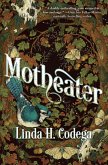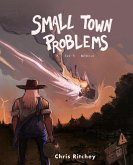In Edgar Chambless's evocative novel, "Roadtown," readers are taken on a poignant exploration of self-discovery within the confines of a small town that represents both a physical and metaphorical crossroads for its inhabitants. The narrative is woven with a lyrical prose style that balances vivid imagery with introspective dialogue, immersing the reader in the complex lives of characters navigating their personal quests for meaning in a seemingly stagnant environment. Chambless deftly captures the nuances of rural existence while engaging with themes of isolation, identity, and the passage of time as each character confronts their past and future against the backdrop of Roadtown's unyielding landscape. Edgar Chambless, a writer deeply rooted in rural Southern culture, draws upon his own upbringing in small-town America, where the coexistence of familiarity and entrapment informs much of his work. His experiences navigating the intricacies of community relationships grant readers an authentic lens through which to engage with the narrative. Chambless's insightful portrayals of human behavior and emotional struggles provide a profound understanding of the societal forces that shape our lives. "Roadtown" is highly recommended for readers seeking a reflective journey that transcends traditional storytelling. Chambless's ability to evoke deep emotional resonance makes this novel an essential read for those interested in literary fiction that grapples with the complexities of the human condition. Prepare to be captivated by the stark beauty and intricate narratives that inhabit "Roadtown," as it invites you to ponder your own path and what it means to truly belong.
Dieser Download kann aus rechtlichen Gründen nur mit Rechnungsadresse in A, B, BG, CY, CZ, D, DK, EW, E, FIN, F, GR, H, IRL, I, LT, L, LR, M, NL, PL, P, R, S, SLO, SK ausgeliefert werden.
Hinweis: Dieser Artikel kann nur an eine deutsche Lieferadresse ausgeliefert werden.









